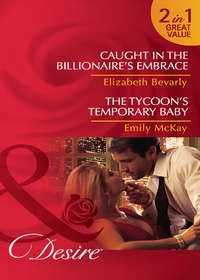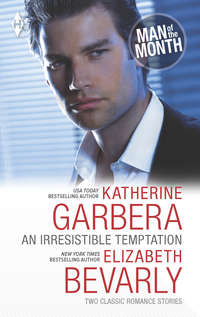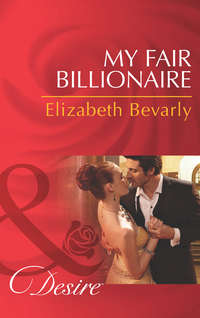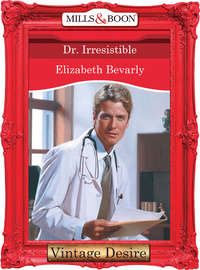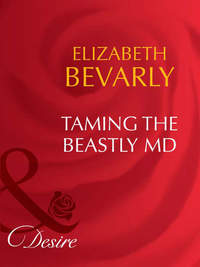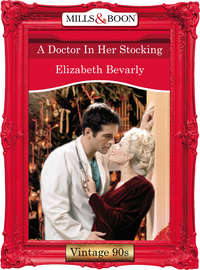
Moriah's Mutiny
Austen was so unlike other men she knew, so far removed from the dry, overly academic professors and the insecure, pseudo-intellectual students with whom she came into daily contact. Moriah only dated occasionally, and then never anyone outside her social or academic circles, which basically were one and the same. She shared common interests with men of her acquaintance, and she generally had a good time when she went out, but never had a man excited her the way Austen had within moments of meeting him. He was handsome in a rebellious, carefree sort of way, completely confident and self-assured. He was clever and interesting, and along with Dorian had told her some of the most wonderful stories about the Caribbean she’d ever heard. He made her laugh, and feel oh so good. Was it any wonder then that she found herself liking Austen, liking him a lot?
As one slow song faded into another, Austen continued to hug Moriah’s warm, softly curving body more expressively against his, unwilling to put an end to their intimacy just yet. Dancing with Moriah was the only socially acceptable way he could think of to be this close to her, but he realized unequivocally that even this closeness wasn’t enough. It shocked him how good she made him feel so soon after meeting her, but it was more than the sexual yearning she aroused in him. Hell, just about every night he met a woman he wanted to take to bed. With Moriah, though, the attraction was more complex, more puzzling. He figured that if he plied her with a few more drinks, he could probably talk her into anything. She seemed more than willing right now. But for some reason, sleeping with her tonight was the last thing he wanted to do. She wasn’t meant for one-night stands, and he knew a one-night stand wouldn’t even come close to satisfying what he wanted with her.
For the first time that he could ever remember, Austen wanted to get to know a woman, wanted to delve into her soul and discover everything he could. He wished fervently that he didn’t have so much work looming before him. Tomorrow afternoon he would have to leave St. Thomas, and he wouldn’t be back for almost a month. By that time Moriah would be long gone, back to Philadelphia and the stuffy, stifling world of anthropology, and he’d never have the chance to further explore these curiously tumultuous sensations that had been speeding through his body ever since he’d laid eyes on her.
He suddenly ceased the slow movement of their bodies that had passed for dancing and pushed her at arm’s length. Searching her face earnestly, focusing his amber eyes on her dark gray ones, he asked quickly, “Moriah, how long will you be staying on St. Thomas?”
The quickness of his movements and the intensity in his voice surprised her, and her eyes widened with confusion and concern. “Until tomorrow,” she told him.
He shook his head slowly as if he didn’t understand. “But you said your family is coming down tomorrow. How can you be leaving?”
“They are coming,” she assured him. “But we’re not staying here. We’re going island-hopping for the next two weeks, all over the place. It was my sisters’ idea.” And now I have another reason to resent them, she thought. Their decision to charter a boat and leave St. Thomas meant she wasn’t going to be able to meander down this new avenue her life had stumbled upon.
Austen’s thoughts suddenly became urgent. He didn’t know why, but somehow he had to see her again. “What islands?” he pressed. “Maybe we could meet up on one of them. I’ll be traveling, too, for the next four weeks.”
Moriah thought for a moment. It would be fabulous to meet up with Austen at some point during the cruise, especially since she knew her sisters would have more than their share of invitations from men. It was always the same. Morgana, Mathilda and Marissa would dazzle everyone who happened to meet the group of sisters, and Moriah would be unwittingly pushed into the background. It wasn’t that she was particularly unattractive, uninteresting or inept. It was just that the three elder Mallorys were, in a word, spectacular. Moriah, by comparison, was pretty, nice and well-bred. And most men, given the choice, would choose dazzling over decent any day.
Yet somehow Moriah sensed that Austen would be different. He wasn’t shallow and superficial like the men her sisters generally dated, and she felt he wouldn’t be impressed by the fame and fortune and flutter that surrounded them. Austen liked her; she could feel it. And even the looming specters of her sisters would fail to turn his head. She hoped.
“I…I’m not sure,” she replied honestly. “My sister has our itinerary, and to tell you the truth, I had very little to do with the planning.” That was a laugh, she thought. She’d never had any amount of input into the preparation of their vacations. Her sisters always chose the destinations and activities, always organized every detail, even decided what they’d order for dinner at the restaurants they selected. They never bothered to consult Moriah. Why should they? Every Mallory knew that little Mo was far too inexperienced to make suggestions of such magnitude. Every spring Moriah received a letter from Morgana telling her where they were going, when they would meet and how much she could expect to spend. And like the unobtrusive little sister that she was and had always been, Moriah went along obediently and silently.
“You came to the Caribbean for a vacation and you don’t even know where you’re going?” Austen asked incredulously.
Moriah became defensive at his tone of voice. “I’m not very good at organizing things,” she explained lamely. Then she quickly remembered that her flight home was from St. Vincent. “I know we’ll be in St. Vincent at the end of the trip,” she offered hopefully.
“Great.” Austen breathed with a sigh of relief. He was going to wind up there, too. “When?”
“We should be arriving on the fourteenth sometime, because our plane back to the States leaves the afternoon of the fifteenth.”
Austen couldn’t believe his good luck. “That’s terrific!” he exclaimed happily. “I’ll be there the fourteenth through the sixteenth!”
Moriah’s shy smile told him she was as happy about that as he.
He let his hands roam up to her shoulders and give them an affectionate squeeze. “We could meet there somewhere,” he told her uncertainly. “If you want to, I mean.”
She nodded slowly, confused by the sudden case of nerves that was invading her body. Her stomach tightened into a fist, while her heart pounded erratically in her throat. She felt as if she was a teenager again, back at The Prescott Academy, hanging out by the boys’ gym in hopes of catching a glimpse of the school quarterback. “Yes,” she answered breathlessly. “I’d like that a lot.”
“Great,” he repeated, then felt like an idiot for suddenly losing track of his normally extensive vocabulary.
“But I don’t know anything about St. Vincent,” she told him. “I don’t know where anything is.”
“No problem,” he assured her. “It’s not that big an island.” He wracked his brain to come up with a place where he could meet her that would be appropriate. Normally he saw very little of the islands he visited, usually restricting himself to the bar life—waterfront bars at that. But Moriah wasn’t exactly the type of woman to frequent such haunts. The Green House and Sparky’s were great places to go when he was home on St. Thomas, crawling with tourists and locals alike who might want to hire him and Dorian, or else put him in touch with someone else who would. But when he worked, he generally needed the distraction and escape that came with little hole-in-the-wall dives, wanting to get away from the demands of his employers, usually self-centered, whiny, red-faced little people who wanted to spend their vacations throwing their weight around because they’d been pushed too far by their own bosses at home.
After a moment’s thought, he came up with a brilliant idea, the perfect spot for trysting lovers. Somehow that’s the way he viewed their next meeting. “The airport is in Kingstown,” he told her. “Just north of town is the botanical gardens. They’re gorgeous. Any cabdriver can take you there. Meet me the evening of the fourteenth at, say, five o’clock?”
“Okay,” Moriah agreed. “Five o’clock it is.”
“I’ll be at the front entrance with a red hibiscus behind my left ear,” he said with a smile.
“I’ll find you,” she promised.
They gazed at each other for a long time, having forgotten that they were still standing in the middle of the dance floor until another couple bumped into them during the duo’s lively rendition of a popular Jimmy Cliff tune.
“Oops,” Moriah mumbled sheepishly as she was thrown once again into intimate contact with Austen’s tall, muscular form.
He caught her in his arms, steadying her even though there was very little need to do so; she had righted herself by gripping his big biceps possessively. He smiled when she looked up at him shyly with wide, questioning eyes. Almost involuntarily he lowered his mouth to hers, nibbling provocatively at her lips, tasting the corners of her mouth with the tip of his tongue, pulling her closer still until she wasn’t sure where she ended and he began. Moriah closed her eyes then and kissed him back, softly at first, in response to the gentle request in his actions, then more intensely as the passion built. Amid the sweating, gyrating, laughing dancers on the floor, Austen and Moriah became oblivious to everything except each other—exploring, touching, tasting as if they’d never experienced the glory that could be found with another human being. Only when a couple of islanders danced by and muttered, “Eh, go for it, mon,” did they put an end to their extensive research, standing still at the center of a crowd, feeling muddled and uncertain, gasping for breath and confused as hell.
“I’m sorry,” Austen whispered.
“For what?” she rasped through ragged breaths.
“I shouldn’t have kissed you like that. Not out here in front of all these people.”
“I thought I was the one who kissed you,” Moriah told him.
“Did you?”
“I don’t know,” she confessed with a laugh, honestly confused. “I don’t know what’s happening between us. It’s like…”
“Like nothing you’ve ever experienced,” he finished for her.
“Yes,” she agreed with a slow nod.
He nodded, as well. “Me, too,” he said softly. After a brief instant he added, “Come on. Let’s go back to the table.”
When they returned to their seats, most of the original group had dispersed, leaving only Dorian and his date, Maggie, a very beautiful and exotic-looking woman from St. Lucia who was wearing the most form-fitting red dress Moriah had ever seen, and another couple from St. Thomas that Austen had called old friends, a sixty-three-year-old Norwegian named Gustav and his twenty-two-year-old Swedish wife of four years, Anna. They were passing around photographs of their eight-month-old twins when Moriah and Austen returned, and it occurred to Moriah then, that since she had arrived in the Caribbean, she hadn’t met a single person who wasn’t interesting in some way.
Despite Austen’s warnings, Moriah ordered another nautical nog, arguing that since the drink had coffee in it, she couldn’t possibly get that drunk from one or two more, and the group lapsed into lively conversation. Seated beside Austen, feeling more and more mellow as the night wore on, Moriah began to experience a most remarkable sense of well-being, as if the entire earth were beginning to rotate specifically as she dictated. All of a sudden her life seemed more appealing, her future more promising. And then, with surprising clarity, something very odd and very significant occurred to her.
For the first time that she could ever recall in her life, Moriah Mallory felt as if she was in the center of things instead of in the background, like she was a part of what was going on instead of a witness to it. Her insights into the dialogue surrounding her were well-heard and appreciated by the others, and their responses in return were pertinent and respectful. She simply wasn’t used to such reactions after years of being ignored or pooh-poohed by her family as too young, too inexperienced or too naive to know what she was talking about. Moriah liked Austen’s friends almost as much as she liked Austen, and she was startled to discover that she felt more at home in the dimly lighted, character-infested bar than she had ever felt among her family at home or her colleagues at the university. On top of everything else Austen had made her feel that evening, he’d given her the opportunity to be a part of something, had made her feel as if she belonged. And for that more than anything else, she felt she owed him the greatest thanks.
When the hour grew late and the conversation lagged, the group reluctantly but unanimously agreed that it was time to part ways. Gustav and Anna were going to head home, while Dorian and Maggie invited Austen and Moriah to an all-night party at the home of a mutual friend near Red Hook. With an expressive glance toward each other, both simultaneously declined. Instead Austen drove Moriah back to her hotel, taking a roundabout route to give her a casual tour of the island along the way. Even in the dark, the moonlit views were spectacular, and Moriah breathed deeply the balmy Caribbean night, so different from the stifling, stale heat that had pervaded Philadelphia all summer. What was it about the tropics that made the heat not only bearable but enjoyable? she wondered. Then gazing along the way at the silver moon and crystal stars that hung above the lush whispering palm trees and the long ribbon of surf that stretched around the U-shaped beach at Magen’s Bay, she realized the answer to her question. Who wouldn’t prefer this to the city?
Probably anyone who couldn’t find a job down here, she told herself drily. Too bad the number-one business was tourism, she added silently. She hadn’t gone to school for seven years and suffered through her thesis and dissertation to become a hotel manager or bartender or diving instructor. And even if her studies focused on primitive Caribbean cultures right now, there weren’t too many universities down here that could offer her the funds, the staff or the resources she needed to facilitate her research.
Moriah sighed heavily at the realization, and Austen glanced at her from the driver’s side of his Jeep. Every time he looked at her, she was more beautiful, he thought. And now, with the moon glinting off her curls like honeyed silver, her hair tossed about furiously by the wind, she nearly took his breath away. When they finally arrived at her hotel, he pulled into the parking lot and got out along with her, suggesting that they end the evening with a stroll along the beach.
“But it’s after one o’clock in the morning,” she protested reluctantly, beginning to feel a significant buzz from her drinks at Sparky’s but still unwilling to end what had been an exceptionally pleasurable evening.
“Just a short one, Moriah,” he entreated. “Please?”
She smiled at him and capitulated easily. “Okay.”
They found their way down to the beach through the nearly deserted hotel lobby and kicked off their shoes when they touched the warm, powdery white sand. They both reached automatically for the other’s hand as if it were the most natural thing in the world to do, and Moriah found herself gazing up toward Austen’s face expectantly, as if he might be able to reveal to her all the secrets of the universe. Instead she saw a man whose burnished skin made him ruggedly handsome, whose charmingly crooked smile displayed a row of even, white teeth and gave rise to deep slashes on his square jaws that she supposed were meant to be dimples. A funny little heat seeped into Moriah’s stomach, as if she’d consumed a flaming dessert before the fire was extinguished. It spread into her heart and her breasts, creeping up her neck to her face, and she knew her temperature must have risen ten degrees just looking at him. Somewhere in the distance, perhaps at one of the bars or other hotels or maybe just somewhere in the hidden darkness of her feverish imagination, Moriah heard steel drums picking up a lively, joyful tune, something that reminded her of endless oceans and long sea voyages, of hot passion-filled nights and tranquil summer days.
Austen seemed to hear the magic, mystic music, too, because he stopped suddenly and turned to her, searching her face for something he didn’t voice. As the warm surf lapped playfully about their ankles and the cool breeze lifted their hair, Austen brought his hands up to gently cup Moriah’s face. For long moments he only looked at her, and gingerly, she covered his hands with her own and waited. Finally he dipped his head quickly and brushed her lips with his, so softly that Moriah thought at first she must have imagined it. But then he kissed her again, and again, this time gently urging her shy mouth with his, asking permission, petitioning, pleading.
Eagerly she answered him with a need and desire to rival his own, running her fingers down the length of his bent arms to rest on his shoulders, coming up on tiptoe to press her mouth anxiously against his. With a groan, Austen wrapped his arms tightly around her waist, lifting her easily from the sand to bury his face in the thick, sea-scented tresses that fell over her shoulder. Hungrily he kissed her neck and collarbone, her jaw, her cheek, her forehead. Then once again his lips traveled down to capture hers, hot and insistent. He traced her mouth with the tip of his tongue, then nipped and tasted her lower lip as if he couldn’t get enough.
“Moriah,” he rasped out softly, pulling her tightly into his arms, tucking her head snugly beneath his chin, “we have to stop this right now.”
Moriah’s heart banged against her rib cage with the speed and force of a battering ram. What am I doing? she asked herself frantically, realizing with utter shock that her behavior tonight was so unlike her usual stern reserve and propriety. It was as if she had become another person since she had met Austen. As if her personality had just split down the middle and now she was acting like some wanton, hedonistic, mindless being. Good heavens! She was acting like one of her sisters! It simply was not like Professor Mallory to pick up a man in a bar and follow him all over town. Never in her life had she reacted so wildly and impulsively to a man the way she had to Austen. Not with professional and academic men she had known for months and years, and certainly not with some beach bum she had just picked up in a bar.
Virtually all of her life she’d been building up sturdy walls and barriers to keep away the pain that came with continuous rejection, to protect herself from ever being thoughtlessly hurt again. But somehow, and in a very short span of time, Austen had managed to tear down those walls, break through those barriers and had experienced very little difficulty in doing so. Moriah had to admit with a good deal of surprise that she had been perfectly happy to let him do it. And standing here now on the beach of a tropical island, digging her toes into the sand, breathing in the fragrance of the summer night and the handsome, exciting man beside her, savoring the kiss of the breeze on her skin and watching the shimmery light of the wide silver moon dance across the tranquil water…it suddenly occurred to Moriah that this was exactly where she belonged. The scent of her stale, stark campus office was exactly where it belonged right now, too—a million miles away.
Moriah told herself that it was precisely because she did feel like another woman that she made her next suggestion. Because she was free of the restrictive leashes that her job and her relatives choked around her, free of the academic and familial mores that dictated she be stark and stale, too. With Austen, she was no longer Mo Mallory, underachieving younger sibling of the spectacular Mallory sisters, nor did she have to perform to the high standards and intellectual level of Professor Moriah Mallory, Ph.D., cultural anthropologist. Here, with him, she could be anyone she wanted to be, and for tonight, she just wanted to be Moriah, a woman with wants and needs like any other, a woman whose feelings were fierce and whose desires ran deep. A woman who wanted and needed the man who held her close in his strong arms.
“Austen,” she whispered quickly, breathlessly, fearful that the wind would whisk her words before he heard them, “I want you to spend the night with me. I want to make love with you.”
She heard him catch his breath, felt his heart begin to fire rapidly in his chest. For long moments neither of them moved, and she began to worry that Austen wasn’t going to answer her. Finally his softly uttered words splintered open the dark, quiet night.
“Moriah, you don’t know what you’re saying,” he told her softly.
“Yes, I do,” she insisted.
He pulled his head from above hers and looked affectionately down into her eyes, then shook his head slowly back and forth. “No, you don’t,” he repeated simply.
“Austen—”
“Moriah, you’re here temporarily on vacation,” he interrupted her. “And the Caribbean is a far cry from Philadelphia, believe me. It’s very, very easy to get things mixed up down here, very, very easy to confuse your priorities and values.”
“But—”
“I went a little crazy myself the first time I came down here, and when I went home, I had to do some pretty serious thinking before I decided to change the way I was living. It took me months to make the decision. You’ve only been here for one day.” He bunched a fistful of curls at her temple into his palm and gazed into her eyes with an expression Moriah didn’t understand. “You have no idea what you’re saying right now. Trust me. It’s your heart talking, not your head.”
She lifted her chin a little defiantly. “And what’s so wrong with that?” she demanded. “Maybe if everyone thought with his heart instead of his head the world would be a better place.”
He smiled at her, a smile that was sweet, serene and sad. “That’s never going to happen. Everyone would grow up to become a fireman or a ballerina, and we’d all do nothing but lie on the beach and eat out.”
“But, Austen,” she protested, “I’ve never met a man like you before. You’re…” She paused for a moment, uncertain what it was exactly she wanted to say. Finally she just told him, “I don’t want anything to happen. I don’t want you to disappear and then never know what it’s like to…”
When her voice trailed off, leaving her statement unfinished, he smiled at her again, but this time his smile was gentle, happy and warm. “You’re not going to lose me, Moriah,” he assured her.
Her eyes searched his frantically. “You promise?”
He nodded slowly and pushed back her hair with his hand. “I promise,” he vowed, leaning down to seal the bargain by placing a soft kiss on her forehead.
“Well, could we stay out walking a little longer anyway?” she asked him hopefully.
“What about your family tomorrow? Didn’t you want to get up early to meet them?”
Moriah pushed the annoying thought of her sisters to the back of her brain. “Oh, who cares?” she muttered irritably. “Let them get a taxi to the hotel, they’re not helpless.” She circled her arms around Austen’s neck and arched her body closely toward him. “I don’t want this night ever to end,” she said quietly.
Oh, God, he groaned inwardly, loving the way her body felt pressed so intimately against his, neither did he. He began to reconsider the wisdom of his previous statements to Moriah. Maybe he’d been a little rash in suggesting that she didn’t know what she was saying when she told him she wanted to make love. Hell, she was a grown woman; she knew what she was doing. What would be so wrong about the two of them spending the night together? When had he become so damned noble, for God’s sake? And when had he developed a conscience?
“All right,” he ceded to her request. “Just a little farther up the beach. But then I have to leave. I’ve got to work in the morning.”
Moriah was about to ask him what exactly it was that he did for a living, surprised that the question hadn’t come up before now, but at that moment, the steel-drum music started up again, a catchy mambo number that made her want to dance. “Let’s go find out where the music is coming from,” she said with an excited smile.


